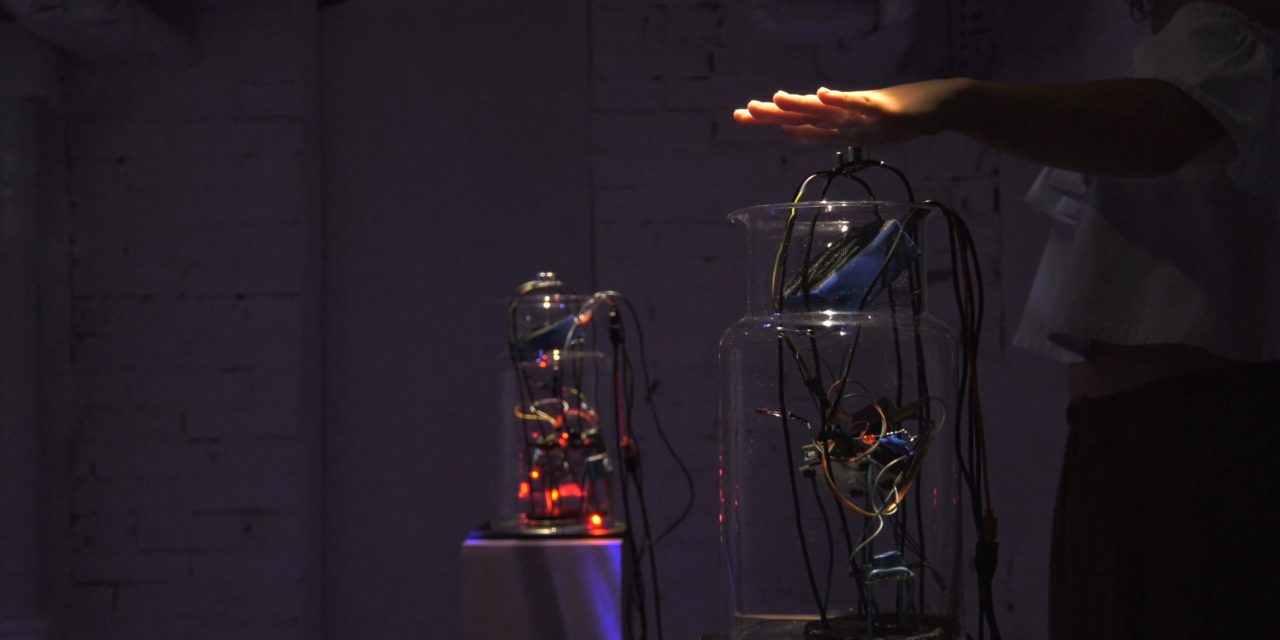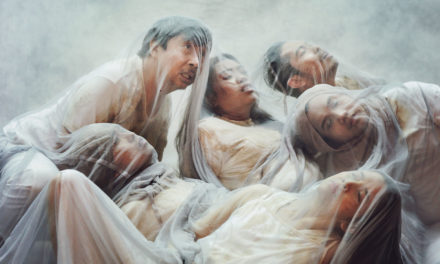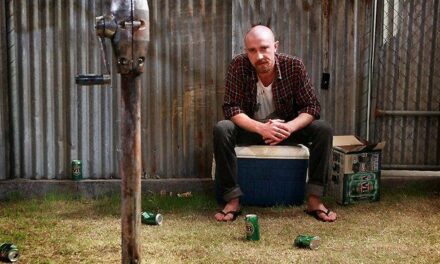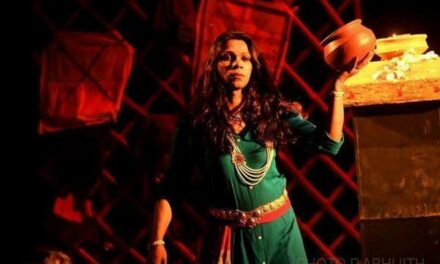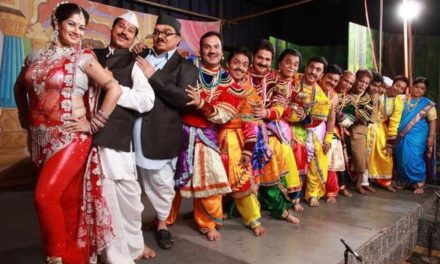The Institute of Theatre and Media Arts at Adam Mickiewicz University in Poznań runs two-degree programs: a bachelor’s degree in Theatre Studies and a master’s degree in Interactive Media and Performances. The Institute also offers doctoral studies in both areas.
The Institute’s research, like the education it offers, is interdisciplinary, open to other fields, and conducted in close collaboration with artists and cultural institutions. It pays attention to the historical and the newest phenomena in performing arts, while retaining its high scholarly standards and content.
The Theatre Studies
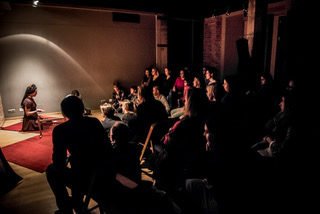
Theatre Studio, Photograph by M. Zakrzewski
The Theatre Studies undergraduates engage with core modules that include exploring the historical and contemporary issues in Polish and international theatres, theoretical, and practical aspects of acting, theatre criticism, and theatre in interdisciplinary contexts. They can also choose one of two pathways (specializations): Curating Interdisciplinary Projects and Theatre of Local Communities. The former–unique in Poland–allows students to take on a performance and/or theatre curator role. After a two-year teaching period, the students programme and produce the festival Nowa Siła Kuratorska [New Curating Power], during which they present projects realized in collaboration with invited artists and groups from various backgrounds and disciplines. The Theatre of Local Communities specialization explores a variety of issues in community and local theatres, including theatre for young audiences. We ensure that our students encounter diverse theatre events in Poznań such as international (Malta Festival) or national festivals (Bliscy Nieznajomi/Close Strangers at the Polski Theatre or independent theatre festivals) as well as everyday activities of local cultural institutions.
Interactive Media and Performances
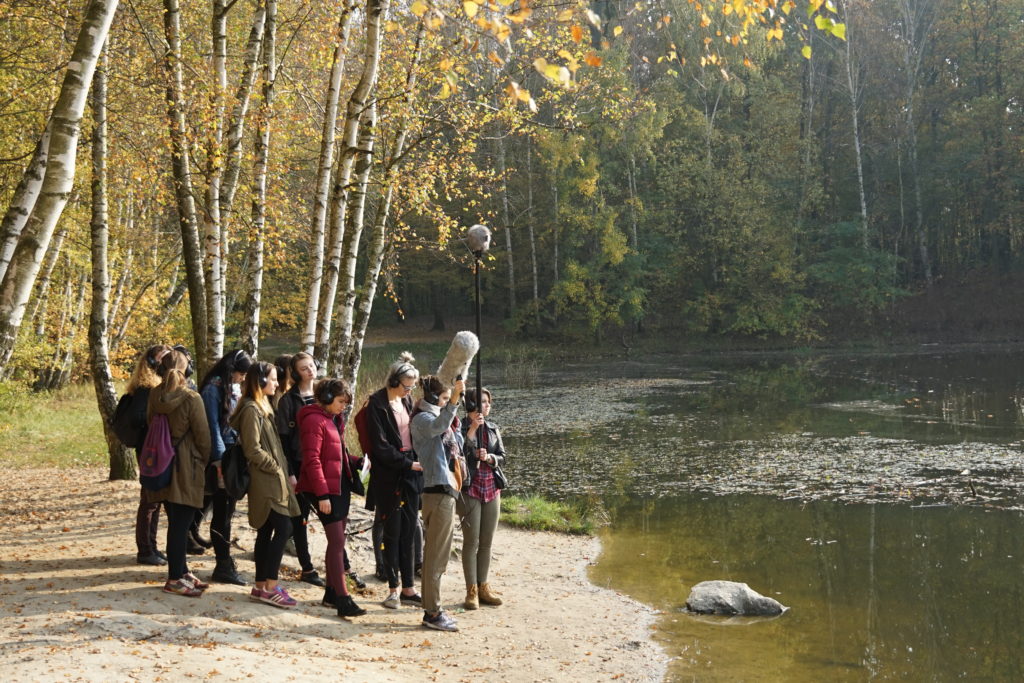
Students of Interactive Media and Performance AMU, sound ecology workshop 2017.
The graduate students in the Interactive Media program have already gained experience from a variety of bachelor’s degree courses (including arts, science, and technology-based degrees). They build on this experience during their master’s studies, which require them to apply their theoretical knowledge to practice (project-based learning), to create a synergy effect in teamwork, and to open up to interdisciplinary experiments in the area between the humanities and technology. The Interactive Media program is an incubator for many projects that explore current issues in humanities connected to, amongst other things, the laboratory, ecology, the environment, the impact of technologies on everyday lives, and interlinks between research and the creative arts. The underpinning idea of the program is to allow students to develop their interests through collaborations with people of different competencies, skills, and disciplines. The aim is to engage with a particular research question using a variety of tools from science, technology, and the arts.
Academic Staff: Experienced Lecturers, Scholars, and Leading Practitioners
The programs are run by a team of experienced lecturers who are often both scholars and leading practitioners. Professor Grzegorz Ziółkowski–the author of books on Peter Brook’s and Jerzy Grotowski’s creative achievements as well as a monography on self-immolations and their resonances in contemporary culture–introduces students to the art of acting and conducts a multi-perspective research together with international collaborators and participants of his Acting Techniques Intensive Seminars. Dr. Agata Siwiak is a highly regarded curator of performative projects; one of her most renowned works is the series Wielkopolska: Rewolucje [Wielkopolska: Revolutions] and the POP/UP festival. Professor Agnieszka Jelewska and Dr. Michał Krawczak co-founded the Humanities/Art/Technology Research Centre and are leaders of several transdisciplinary practice-led research projects. Their exhibition Post-Apocalypsis was awarded the Gold Medal at the 2015 Prague Quadrennial of Performance Design and Space festival. Dr. Katarzyna Lisiecka is a co-founder of the dynamic Centre for Research on Music Theatre and runs the masters-level Interdepartmental Opera specialization. Professor Marta Karasińska is an expert in theatre for young audiences and a long-time collaborator of Centrum Sztuki Dziecka [Children’s Art Centre]. Professor Krzysztof Kurek researches and teaches Polish theatre history, and Professor Elżbieta Kalemba-Kasprzak’s expertise is in contemporary theatre. Together they look after the theatre Olympics, a competition for Polish secondary school students. Professor Magdalena Piotrowska’s interests lie in social spectacle and nineteenth-century theatre. Dr. Tomasz Kowalski is a Shakespearean scholar, a theatre critic, and an expert in contemporary theatre. Professor Jacek Wachowski specializes in performativity and is the author of one of the most discussed textbooks in this field. Professor Ewa Guderian-Czaplińska is interested in contemporary stagings of ancient plays, theatre criticism, and Polish post-war theatre. Marta Wiśniewska is our invaluable Head Administrator.
On the Poznań Theatre Trail
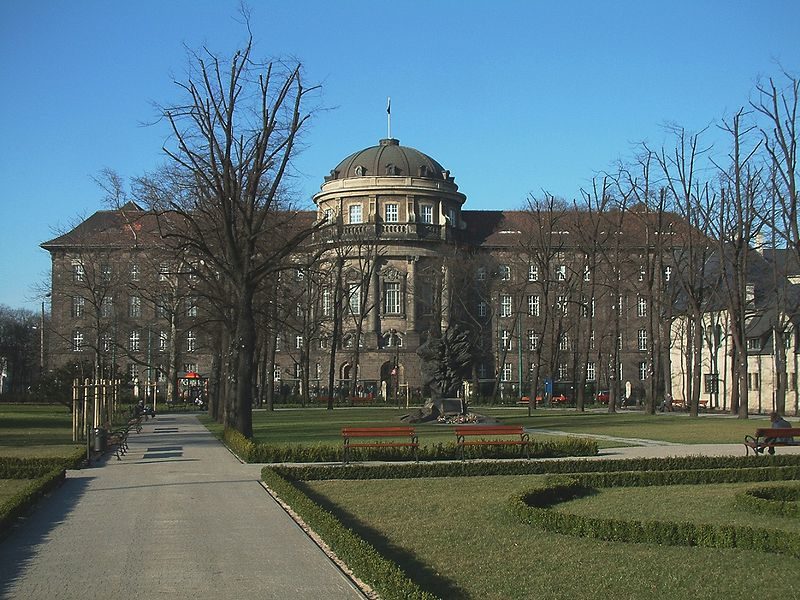
Collegium Maius, Photograph by Radomil
The Institute is situated in the renovated historic Collegium Maius in the city center of Poznań, right on the so-called theatre trail, close to the most important of Poznań’s theatres. The immediate neighborhood of the Teatr Wielki-Opera Poznań [the Grand Theatre-Poznań Opera House] and the Centrum Kultury Zamek [ZAMEK Culture Centre] makes it easy for our students to immerse in what these institutions offer and for their guests to attend the events organized by Collegium Maius. The Institute also has their own–small but atmospheric–theatre studio. It is located in a basement and is used both for classes and for performances by students and invited artists.
Information
Institute of Theatre and Media Arts
Director: Professor Ewa Guderian-Czaplińska (ewa.guderian@gmail.com)
Deputy director: Dr. Michał Krawczak (krami@amu.edu.pl)
Address: Collegium Maius, ul. Fredry 10, 60-701 Poznań, Poland
Email: dramat@amu.edu.pl
Website: www.itism.amu.edu.pl
Phone: 0048/ 61-829-45-32
Translated by Kasia Lech
This post was written by the author in their personal capacity.The opinions expressed in this article are the author’s own and do not reflect the view of The Theatre Times, their staff or collaborators.
This post was written by Ewa Guderian-Czaplińska.
The views expressed here belong to the author and do not necessarily reflect our views and opinions.

